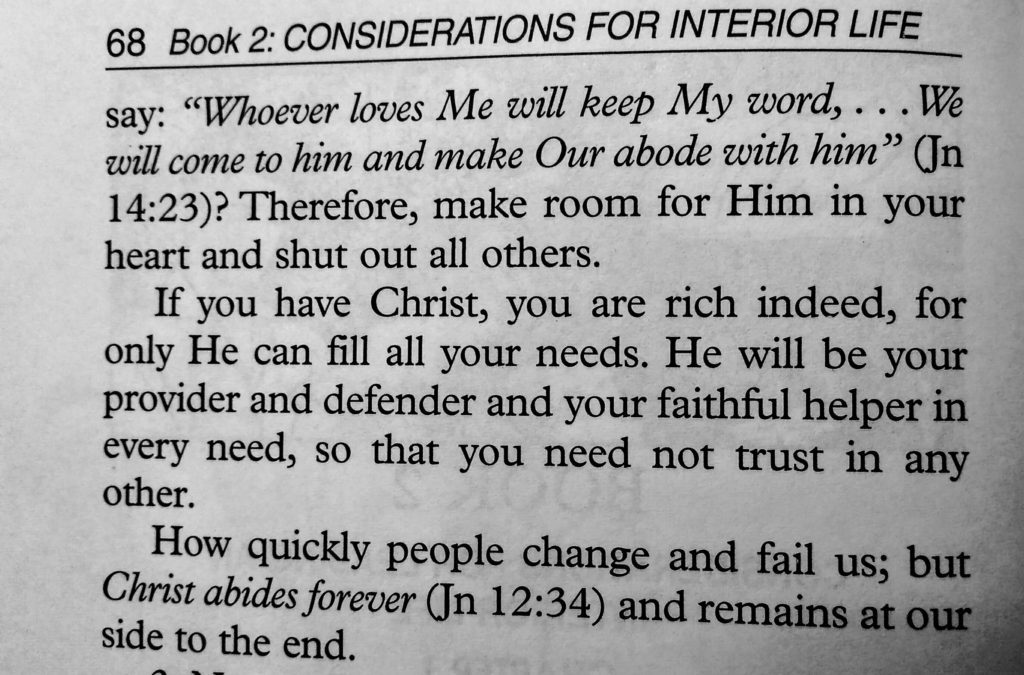 I spent four dreamy years in college studying literature. There are a few texts that I still think about once in a while and even fewer that I reread on occasion. One example is Ernest Hemingway’s “A Clean, Well-Lighted Place.” If you have not read it, here are the very basics. Spoiler alert: while it’s not a very climactic story, this will take away any element of surprise for you.
I spent four dreamy years in college studying literature. There are a few texts that I still think about once in a while and even fewer that I reread on occasion. One example is Ernest Hemingway’s “A Clean, Well-Lighted Place.” If you have not read it, here are the very basics. Spoiler alert: while it’s not a very climactic story, this will take away any element of surprise for you.
A deaf old man drinks too much as he sits alone in a Spanish cafe in the early morning hours. A young waiter and an older waiter serve him and talk amongst themselves about the old man’s sad life and recent suicide attempt. The young man is impatient, very unsympathetic, and only worries about hurrying home to his wife. The older waiter, though, understands the old man’s desire to stay at the cafe. It is clear that he knows something about loneliness from personal experience. He senses that he is in need of a clean, quiet, and well-lighted place. When the cafe finally does close, the young waiter heads home. The older waiter walks to a bodega and continues to talk to himself about the merits of a quiet place offering light to drown out the night. His thoughts turn to “nada,” which means “nothing” in Spanish. He goes so far as to recite a version of the Our Father and the beginning of the Hail Mary inserting the word ‘nada’ throughout (“Our nada who art in nada…”) and so on. After he has one drink, he starts for home knowing he will finally have his sleep when daylight comes. He concludes he must have insomnia and assures himself that lots of other people must have it too. The end.
This is loneliness, my friends. It is loneliness, depression, and separateness. It can be a blank, non-living sort of existence. One would be hard-pressed to find a single person who cannot relate to these feelings even a little bit. Whether it is situational or chronic, most know the sting of loneliness and despair, or even the urge to run from the day. And perhaps out of instinct, we search. Think about all the opportunities, substances, environments or people we turn to as a defense. Much of the time, these do not keep us unafraid of the day for very long.
I felt called to spend time before the Blessed Sacrament for a couple of years. I assumed it would take lots of discipline and motivation to get me out of the house each week. That’s why I put it off for so long. But once I finally stated that I wished to attend and my husband gave me the thumbs up, I went. It only took a few weeks before I felt so excited about Thursday evenings. As more time passed, I started to feel the kind of eager anticipation that one might before date night. (Still need to make a date night with my husband a reality!) I’m beginning to grasp the meaning of falling in love with Christ.
Weekly I look forward to having a place to go to. It is quiet, peaceful, and I am not in hiding. I know that I am in the presence of the Source. The time I spend away from the chapel or church is an exercise of faith to understand that I am ever in His presence. That is my struggle. So, what a treat it is to get to sit in a physical room with His physical body before my eyes. After months of doing my best to reserve that special hour for the Lord, Hemingway’s story came to mind.
We get weary and frustrated. Even if we are not often alone, we know loneliness. Disappointment and struggle are not in short supply in the world. Sometimes there is a nothingness which somehow weighs us down. Yet God, in His infinite wisdom and mercy, knows all this and provides the solace Himself. He gave us everything we need in this world as we look toward the next. He became man and lived and died solely for our eternal salvation. Before the Son’s earthly mission was complete, He miraculously offered His body and blood so we would never have to live without Him. We now have the physical spaces available to us in chapels and churches. We have the physical presence in the Eucharist, exposed or in the tabernacle. When we live in communion, we are never alone. It is impossible. There is never ‘nada’ preying upon us. After we receive the Body of Christ, we leave the church (small “c”) but we take Him with us. We are even commissioned with bringing Christ to others so that they also find peace against ‘nada’ through us. Talk about unconditional love.
Hemingway’s story is profound in its brevity. In few words, he displays the universality of human suffering in this passing world. But now, about 12 years after I was introduced to the story, I read it with a deep sense of gratitude instead of gloom. I cannot help but reflect on the generosity and wisdom of God for giving His Son and the Church to His children. We can rely on Christ’s humanity, trusting that He fully understands our despair the way our closest friends or family can. We can also rely on His divinity as our Savior, as we ourselves become tabernacles housing the Word made flesh.
The physical “clean, well-lighted place” is for most of us within driving distance, practically at any time on any day. When we participate in the sacraments, we hold within us the very peace which we seek. Perhaps this is what the interior life is and what the saints always recognize and cultivate. If we seek and keep Him in the ways He provided, then we never have to be outside of that “clean, well-lighted place.”

